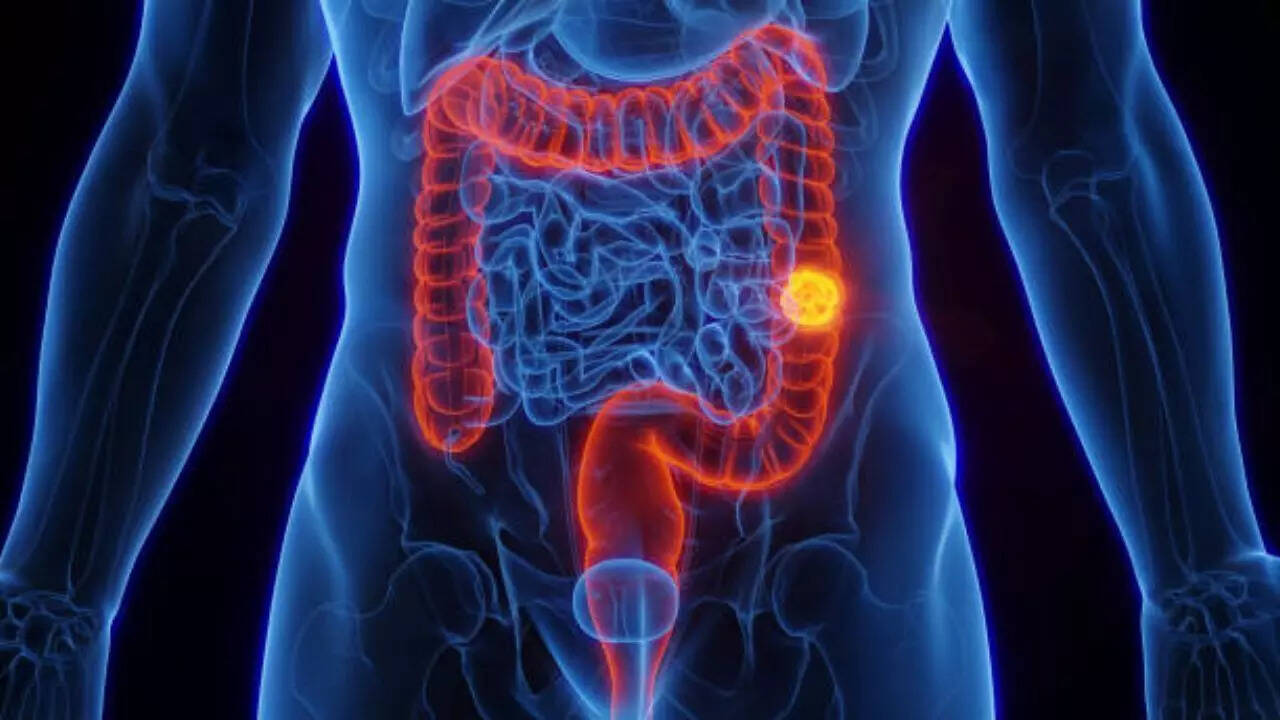One of the most common forms of cancer diagnosed in the United States, colorectal cancer is estimated to be diagnosed in 154,270 people, with 52,900 expected to die due to it, according to the National Cancer Institute. According to the U.S. Centers for Disease Control, over a quarter of Americans are not up to date on the screenings for this disease, thus increasing the risk of dying from it.Below, find what the American Cancer Society says about the screening, symptoms and preventive measures for colorectal cancer.
What is Colorectal cancer?

Image credits: Getty Images
For the unaware, colorectal cancer combines the cancer in two parts of the large intestine, the colon and the rectum. Colon cancer is the one that forms in the tissues of the first part of the large intestine, whereas rectal cancer develops in the rectum, which along with the anal canal makes up the last part of the large intestine. Together, these are referred to as colorectal cancer.
American Cancer Society guidelines for colorectal cancer screening

Image credits: Getty Images
The American Cancer Society has guidelines for the screening of colorectal cancer for those with average risk and those with high risk.Average risk means you don’t have certain risk factors such as a personal history of colorectal cancer or certain types of polyps, family history, inflammatory bowel disease, inherited syndromes or personal history of getting radiation to the abdomen.
Average risk screening recommendations
For average-risk patients, the society recommends beginning regular screening at the age of 45. This can be done with a stool-based test or a visual exam.Those in good health and shape should continue regular screening till the age of 75.Those between 76 and 85 can get screenings on the basis of their preferences, life expectancy, and prior screening history. Once above 85, there’s no need for colorectal cancer screening.
High-risk screening recommendations
High-risk patients are those who have one or more family members with a history of colorectal cancer, have had certain types of polyps removed, have a history of cancer prior to, have had radiation to the abdomen, have inflammatory bowel disease and certain genetic syndromes.These people need to begin screenings for cancer before the age of 45, and should be screened more often, opting for particular tests. For those at high risk, the American Cancer Society does not have any screening guidelines and suggests reviewing the best screening method with a healthcare provider.
American Cancer Society guidelines for colorectal cancer symptoms

Image credits: Getty Images
The society mentions these signs are early symptoms of colorectal cancer:A change in bowel habits, such as diarrhea, constipation, or narrowing of the stool, that lasts for more than a few daysA feeling that you need to have a bowel movement that’s not relieved by having oneRectal bleeding with bright red bloodBlood in the stool, which might make the stool look dark brown or blackCramping or abdominal (belly) painWeakness and fatigueUnintended weight lossBlood test showing low red blood cell count
American Cancer Society guidelines for colorectal cancer prevention

Image credits: Getty Images
While there’s no one way of preventing colorectal cancer, screening can help find the abnormal cells before they become cancerous.Other things that are in your control are managing your diet and physical activity. Excess body weight can increase the risk of cancer in both men and women.Moderate to vigorous physical activity regularly can also help reduce the risk.Make changes to your diet by adding vegetables, fruits and whole grains and reducing red and processed meats.Several studies have found a higher risk of colorectal cancer among people with high intake of alcohol and thus avoiding the beverage completely is advised, along with smoking.
